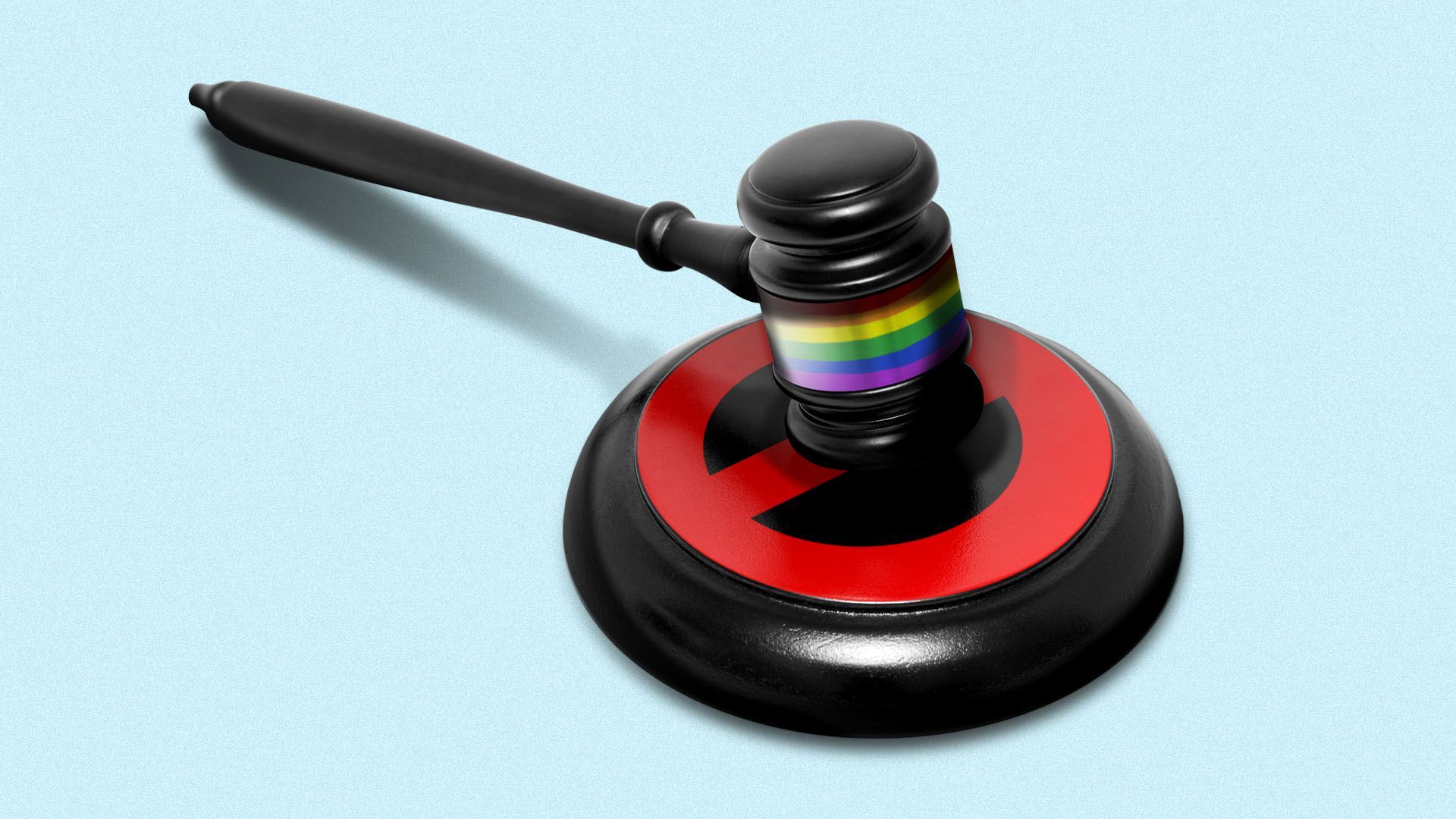Supreme Court's LGBTQ ruling may sideline Trump's health care rules
Add Axios as your preferred source to
see more of our stories on Google.

Illustration: Sarah Grillo/Axios
The Supreme Court’s historic ruling on LGBTQ nondiscrimination could sideline the Trump administration's new policies on health care and adoption.
Why it matters: The ruling's ripple effects will be felt immediately, and could ultimately derail regulations the administration had finalized just days ago.
The big picture: Federal civil rights law prohibits discrimination on the basis of sex, and the Supreme Court said Monday that “sex” includes sexual orientation and gender identity.
- Monday’s case was specifically about employment, but the same legal interpretation will likely carry over to other areas, most notably health care — and that could cause problems for some of the Trump administration's policies.
Between the lines: Just a few days before the Supreme Court’s ruling, the Department of Health and Human Services rolled back Obama-era rules that banned health care providers from denying care to trans patients.
- That was based on the Trump administration’s interpretation of what constitutes “sex” discrimination — that it only encompasses biological traits defined at birth. That is, broadly, the same interpretation the high court rejected on Monday.
What’s next: The court’s ruling does not automatically invalidate the health care rules, but would make them much harder to defend in court. And if the administration doesn’t withdraw the rules, those lawsuits are coming.
- “The court here today clearly articulated that discrimination based on sexual orientation, discrimination based on gender identity, are forms of sex discrimination,” said Alphonso David, president of the Human Rights Campaign.
- “So, we are expecting the administration to rescind their rule immediately,” he said. “If they don't, we are prepared to continue to use all of our resources, including litigation, to sue them and make sure that the rule is never implemented,”
HHS declined to answer questions about the regulations in light of Monday’s ruling.
Federal adoption guidelines could also be affected by the court’s decision.
- The Trump administration has been working on rules that would make it easier for adoption and foster agencies to refuse to work with same-sex couples. Those rules would also face lawsuits if and when they're finalized.
- The specific legal foundations at issue there are somewhat different, but now that the Supreme Court has said civil-rights law prohibits discrimination on the basis of sexual identity and gender identity, any policy allowing such discrimination is going to face a steeper climb in the courts.
The bottom line: It may take a while for some of these issues to work their way through the courts, but the Supreme Court's ruling Monday will make many forms of LGBTQ discrimination harder to defend, and in the scheme of things, that will likely happen pretty quickly.

